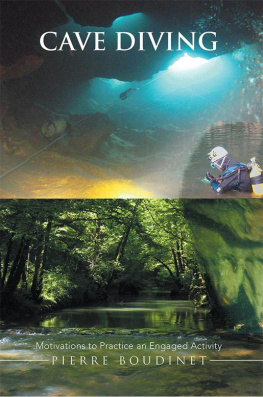
Yoko Ogawa 1990
TRANSLATED FROM THE JAPANESE BY Stephen Snyder
It's always warm here: I feel as though I've been swallowed by a huge animal. After a few minutes, my hair, my eyelashes, even the blouse of my school uniform are damp from the heat and humidity, and I'm bathed in a moist film that smells vaguely of chlorine.
Far below my feet, gentle ripples disrupt the pale blue surface of the water. A constant stream of tiny bubbles rises from the diving well; I can't see the bottom. The ceiling is made of glass and is very high. I sit here, halfway up the bleachers, as if suspended in midair.
Jun is walking out on the ten-meter board. He's wearing the rust-colored swimsuit I saw yesterday on the drying rack outside the window of his room. When he reaches the end of the board, he turns slowly; then, facing away from the water, he aligns his heels. Every muscle in his body is tensed, as if he were holding his breath. The line of muscle from his ankle to his thigh has the cold elegance of a bronze statue.
Sometimes I wish I could describe how wonderful I feel in those few seconds from the time he spreads his arms above his head, as if trying to grab hold of something, to the instant he vanishes into the water. But I can never find the right words. Perhaps it's because he's falling through time, to a place where words can never reach.
"Inward two-and-a-half in the tuck position," I murmur.
He misses the dive. His chest hits the water with a smack and sends up a great spray of white.
But I enjoy it just the same, whether he misses a dive or hits it perfectly with no splash. So I never sit here hoping for a good dive, and I am never disappointed by a bad one. Jun's graceful body cuts through these childish emotions to reach the deepest place inside me.
He reappears out of the foam, the rippling surface of the water gathering up like a veil around his shoulders; and he swims slowly toward the side of the pool.
I've seen pictures from underwater cameras. The frame is completely filled with deep blue water, and then the diver shoots down, only to turn at the bottom and kick off back toward the surface. This underwater pivot is even more beautiful than the dive itself: the ankles and hands slice through the water majestically, and the body is completely enclosed in the purity of the pool. When the women dive, their hair flutters underwater as though lifted in a breeze, and they all look so peaceful, like children doing deep-breathing exercises.
One after the other, the divers come slipping into the water, making their graceful arcs in front of the camera. I would like them to move more slowly, to stay longer, but after a few seconds their heads appear again above the surface.
Does Jun let his body float free at the bottom of the pool, like a fetus in its mother's womb? How I'd love to watch him to my heart's content as he drifts there, utterly free.
I spend a lot of time on the bleachers at the edge of the diving pool. I was here yesterday and the day before, and three months ago as well. I'm not thinking about anything or waiting for something; in fact, I don't seem to have any reason to be here at all. I just sit and look at Jun's wet body.
We've lived under the same roof for more than ten years, and we go to the same high school, so we see each other and talk any number of times every day. But it's when we're at the pool that I feel closest to Jun- when he's diving, his body nearly defenseless in only a swimsuit, twisting itself into the laid-out position, the pike, the tuck. Dressed in my neatly ironed skirt and freshly laundered blouse, I take my place in the stands and set my schoolbag at my feet. I couldn't reach him from here even if I tried.
Yet this is a special place, my personal watchtower. I alone can see him, and he comes straight to me.
I pass the shops near the station and turn from the main road onto the first narrow street heading south, along the tracks. The noise and bustle die away. It's May now, and even when I reach the station after Jun's practice, the warmth of the day lingers in the air.
After I pass the park-little more than a sandbox and a water fountain-the company dormitory, and the deserted maternity clinic, there's nothing to see but rows of houses. It takes more than twenty-five minutes to walk home, and along the way the knot of people who left the station with me unravels and fades away with the sunlight. By the end, I'm usually alone.
A low hedge runs along the side of the road. It eventually gives way to trees, and then the cinder-block wall, half covered with ivy, comes into view. In the places where the ivy doesn't grow, the wall has turned moss green, as if the blocks themselves were living things. Then the gate, standing wide open, held back by a rusted chain that seems to prevent it from ever being closed.
In fact, I have never seen it closed. It's always open, ready to welcome anyone who comes seeking God in a moment of trouble or pain. No one is ever turned away, not even me.
Next to the gate is a glass-covered notice board with a neon light, and on it is posted the Thought for the Week: WHO IS MORE PRECIOUS? YOU OR YOUR BROTHER? WE ARE ALL CHILDREN OF GOD, AND YOU MUST NEVER TREAT YOUR BROTHER AS A STRANGER. Every Saturday afternoon, my father spends a long time looking through the Bible before carefully grinding ink on his stone and writing out this Thought. The smell of the ink permeates the old box where he keeps his brushes and grinding stone. He pours a few drops from the tiny water pot into the well of the stone, and then, holding the ink stick very straight, he grinds the stick into a dark liquid. Only when he finishes this long process does he finally dip his brush. Each gesture is done slowly, almost maddeningly so, as if he were performing a solemn ritual, and I am always careful to creep quietly past his door to avoid disturbing him.
Attracted to the neon light, countless tiny insects crawl on the notice board among my father's perfectly formed characters. At some point, evening has turned to night. The darkness inside the gate seems even thicker than outside, perhaps due to the dense foliage that grows within. Trees are planted at random along the wall, their branches tangled and overgrown. The front yard is covered in a thick jumble of weeds and flowers.
In this sea of green, two massive ginkgo trees stand out against the night sky. Every autumn, the children put on work gloves to gather the nuts. As the oldest, Jun climbs up on one of the thick branches and shakes the tree, and then the younger children run around frantically amid the hail of nuts and dried yellow leaves. Passing near the trees always makes me think of the soft skins surrounding the nuts, squashed like caterpillars on the soles of the children's shoes, and of the horrible odor they spread through the house.
To the left of the ginkgo trees is the church, and at an angle beyond, connected by a covered corridor, the building we call the Light House. This is my home.
The pale blue moisture I absorbed in the stands at the pool has evaporated by the time I reach here; my body is dry and hollow. And it is always the same: I can never simply come home the way other girls do. I find myself reading the Thought for the Week, passing through the gate, entering the Light House-and something always stops me, something always seems out of place.
Sometimes, as I approach, the Light House appears fixed and acute, while I, by contrast, feel vague and dim. At other times, I feel almost painfully clear and sharp, while the Light House is hazy. Either way, there is always something irreconcilable between the house and me, something I can never get past.
Next page









